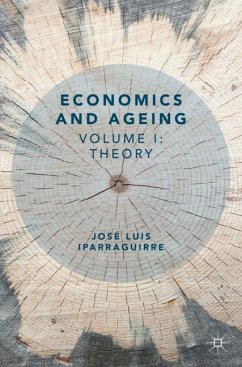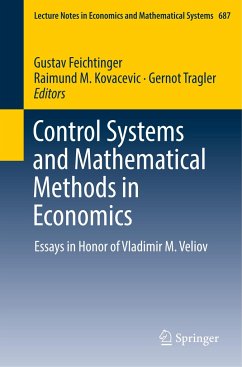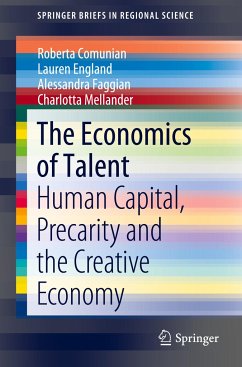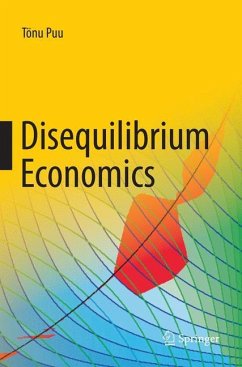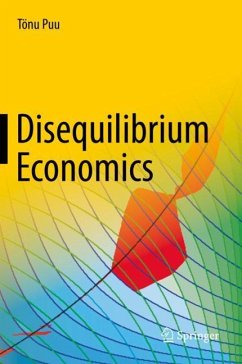
Economics for a Fairer Society
Going Back to Basics using Agent-Based Models

PAYBACK Punkte
21 °P sammeln!
This Palgrave Pivot presents experiments that reveal core dynamics of trade in a complex system. Monetary trade is stripped of all its complications and placed in agent-based models, a complexity research tool capable of reproducing emergent behaviour and evolution. Included are ground-breaking repeatable experiments exploring the impact of evolutionary prerequisites empirically present in markets.Isolating the core dynamics of trade results in very simple agent-based models. However, decades of complexity research demonstrate that even the simplest systems result in emergent behaviour that is...
This Palgrave Pivot presents experiments that reveal core dynamics of trade in a complex system. Monetary trade is stripped of all its complications and placed in agent-based models, a complexity research tool capable of reproducing emergent behaviour and evolution. Included are ground-breaking repeatable experiments exploring the impact of evolutionary prerequisites empirically present in markets.
Isolating the core dynamics of trade results in very simple agent-based models. However, decades of complexity research demonstrate that even the simplest systems result in emergent behaviour that is extremely difficult to anticipate. Readers who are only familiar with the linear-system theories and models used to train almost all undergraduate economics students might be surprised to witness price detaching from supply and demand, and extreme poverty and wealth arising in trade systems populated by agents with equal ability and opportunity. Watch as empirical evolutionary prerequisites are introduced and price patterns characterising two different markets - asset markets and speculative markets - emerge irrespective of supply and demand.
In addition to laying the groundwork of monetary trade in a complex system, more complicated models feature mortal reproductive agents. Including 'living' populations in economic models reveal how the complexity characteristics of our market economy are impacting impoverishment and starvation.
This book invites anyone interested in economics to join the growing ranks of people who are fascinated by the insights offered by complexity research.
Isolating the core dynamics of trade results in very simple agent-based models. However, decades of complexity research demonstrate that even the simplest systems result in emergent behaviour that is extremely difficult to anticipate. Readers who are only familiar with the linear-system theories and models used to train almost all undergraduate economics students might be surprised to witness price detaching from supply and demand, and extreme poverty and wealth arising in trade systems populated by agents with equal ability and opportunity. Watch as empirical evolutionary prerequisites are introduced and price patterns characterising two different markets - asset markets and speculative markets - emerge irrespective of supply and demand.
In addition to laying the groundwork of monetary trade in a complex system, more complicated models feature mortal reproductive agents. Including 'living' populations in economic models reveal how the complexity characteristics of our market economy are impacting impoverishment and starvation.
This book invites anyone interested in economics to join the growing ranks of people who are fascinated by the insights offered by complexity research.





